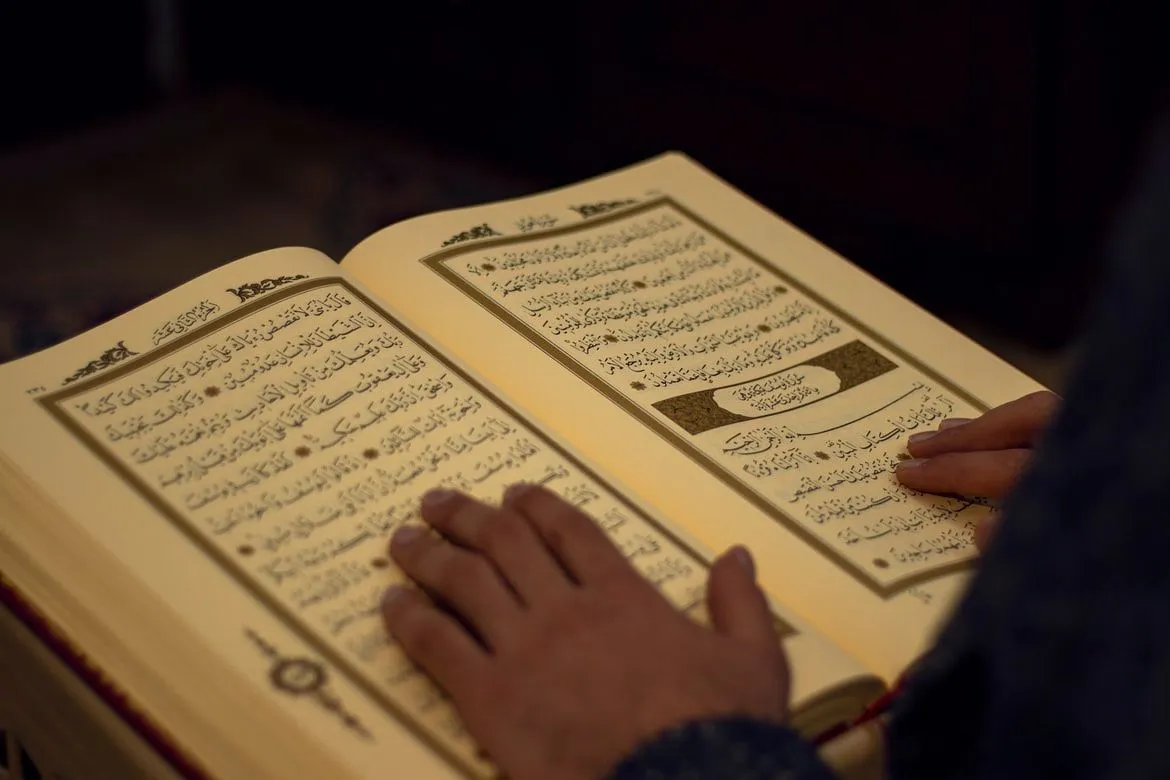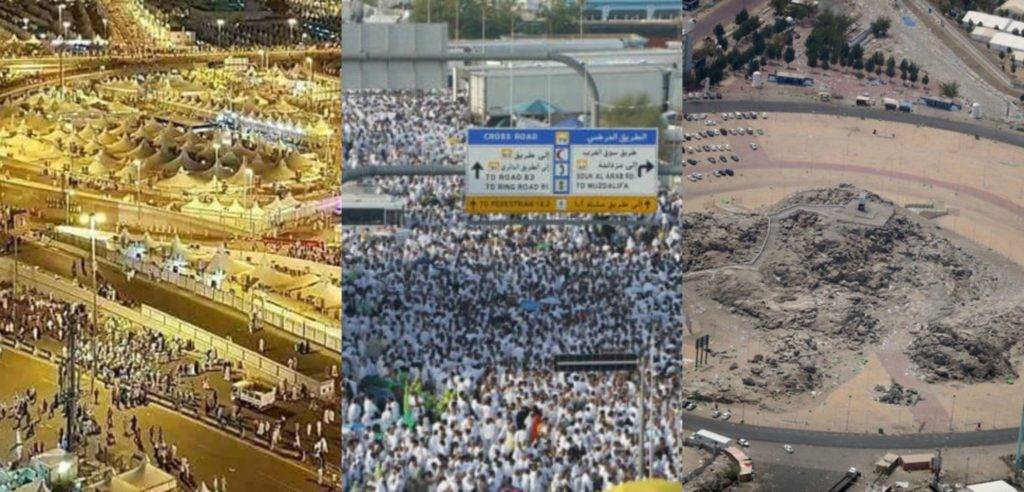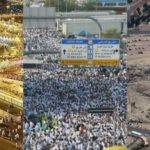
Throughout the years, there are some days that are considered as more virtuous and blessed. In this post, we are posting here the virtues and ibadah of Ashura to get all mercies from Almighty. In our Islamic year, the 10th of Muharram is known as the day of ‘Ashura and we observe it with all due respect from our hearts as it is the day when our Imam Hussain(RA) and his whole family reached to the honorable and highest level of Shahadah. This day holds greater importance in Islamic history and there are different virtues highlighted in the Qur’an and Sunnah along with Ibadah of Ashura.

1. Muharram is mentioned as a sacred month
There are 4 sacred months that Almighty Allah mentions in the Holy Quran. One of the sacred months among those is Muharram while other sacred months mentioned are: Dhul Qa’dah, Dhul Hijjah, and Rajab.
Allah (SWT) says:
“Indeed, the number of months with Allah is twelve [lunar] months in the register of Allah [from] the day He created the heavens and the earth; of these, four are sacred. ”
(Surah At-Tawbah, Verse 36)
The Prophet Muhammad (peace and blessings be upon him) said,
“The year is twelve months of which four are sacred, the three consecutive months of Dhul-Qa’dah, Dhul-Hijjah and Muharram, and Rajab Mudar which comes between Jumadah and Sha’ban.”
(Sahih Al Bukhari)
2. On the Ashura day, Prophet Musa and his people were saved
Prophet Musa (peace be upon him) and the Children of Israeel got protection on this day and they were saved from Pharoah and his army.
“Then We inspired to Moses, “Strike with your staff the sea,” and it parted, and each portion was like a great towering mountain. And We advanced thereto the pursuers. And We saved Moses and those with him, all together. Then We drowned the others. Indeed in that is a sign, but most of them were not to be believers. And indeed, your Lord – He is the Exalted in Might, the Merciful.”
(Surah Ash Shu’arah, Verses 63-68)
3. Prophet Nuh’s Ark came to rest on Mount Judi on Ashura
It is reported by Imam Ahmad (may Allah have mercy on him),
“It was on this day that the Ark of Nuh (peace be upon him) came to rest on Mount Judi.”
(Tafsir Ibn Kathir)
4. The Prophet would fast on this day even before Prophethood
In one of the hadiths, Muwatta of Imam Malik (may Allah have mercy on him) mentioned that in the period of ignorance (jahiliyyah), the polytheists of Makkah would fast on this day. It is because of the tradition of Prophet Ibrahim (peace be upon him). Prophet Muhammad (peace and blessings be upon him) would also observe fast on this day even before prophethood.
Imam Al Qurtubi (may Allah have mercy on him) said,
“Perhaps Quraysh used to fast on that day on the basis of some past law, such as that of Ibrahim, upon whom be peace.”
5. Obligatory Fasting on Ashura Day
There is a greater significance of the 10th Muharram highlighted in the Quran, Hadiths, and on different occasions. The companions of our Prophet Muhammad (PBUH) would observe fast on this day before the obligation was abolished by the fasts of Ramadan.
Aisha (may Allah be pleased with her) narrates in a hadith:
“Allah’s messenger ordered (the Muslims) to fast on the day of ‘Ashura, and when fasting in the month of Ramadan was prescribed, it became optional for one to fast on that day (Ashura) or not.
(Sahih Al Bukhari)
6. The Prophet asked the believers to observe fast on Ashura
Ibn ‘Abbas (may Allah be pleased with them both) said,
“The Prophet (peace and blessings of Allah be upon him) came to Madinah and saw the Jews fasting on the day of ‘Ashura’. He said, ‘What is this?’ They said, ‘This is a righteous day, it is the day when Allah saved the Children of Israel from their enemies, so Musa fasted on this day.’ He said, ‘We have more right to Musa than you,’ so he fasted on that day and commanded [the Muslims] to fast on that day.”
Sahih Al Bukhari
7. The best fast after Ramadan
It is highlighted in a hadith that fasting on the 10th of Muharram (‘Ashura) is the best fast after Ramadan.
“The Messenger of Allah (peace and blessings of Allah be upon him) said: ‘The best of fasting after Ramadhan is fasting Allah’s month of Muharram.”
(Sahih Muslim)
Abu Hurayrah (may Allah be pleased with him) reported,
“I asked the Prophet: ‘Which Prayer is the best after the obligatory Prayers?’ He said:’Prayer during the mid of the night.’ I asked: ‘Which fasting is the best after that of Ramadan?’ He said, the month of Allah that you call Muharram’”
(Sahih Muslim)
8. The Prophet Gave priority to Ashura Fast
Ibn ‘Abbas (may Allah be pleased with them both) said,
“I never saw the Messenger of Allah (peace and blessings of Allah be upon him) so keen to fast any day and give it priority over any other than this day, the day of ‘Ashura’, and this month, meaning Ramadhan.”
(Sahih Al Bukhari)
9. Ashura fasting will expiate sins
On this honorable day, fasting is one of the best ibadah of Ashura that will lead you to all the mercies by Almighty and your all (minor) sins will be forgiven as Tawbah (repenting) is essential for major sins.
The Prophet (peace and blessings be upon him) said,
“Fasting the day of ‘Arafah I hope Allah will expiate thereby for the year before it and the year after it, and fasting the day of ‘Ashura I hope Allah will expiate thereby for the year that came before it.”
(Sahih Muslim)
With Ashura (10th Muharram), we should be effortful to observe the fast on the 9th Muharram too as stated:
Imam Ash-Shafi’i (may Allah have mercy on him) has said,
“It is mustahabb to fast on both the ninth and tenth days, because the Prophet (peace and blessings be upon him) fasted on the tenth, and intended to fast on the ninth.”
10. Get blessings by spending on someone this day
Almighty Allah blesses us with all the mercy at every step of life. Likewise, if one would spend generously to other people then he would surely get rewards, especially on the Ashura day.
The Messenger of Allah (peace and blessings be upon him) is reported to have said,
“One who generously spends on his family on ‘Ashura (10th of Muharram), Allah will be generous on him for the entire year.”
(Al-Bayhaqi, Shu’ab al-Iman)
Moreover, Imam Ahmad ibn Hanbal (Allah have mercy on him) quotes Sufyan ibn Uyayna (Allah have mercy on him) as saying,
“I have practiced this [spending on the family] for fifty or sixty years, and have found nothing but good in it.”
(Lata’if al-Ma’arif)
These are the virtues and Ibadah of Ashura day with the reference of the Holy Quran and Hadiths. May we get all strength to act rightly on the blessed path. If you have more points to add here, do share with MuslimKits.







